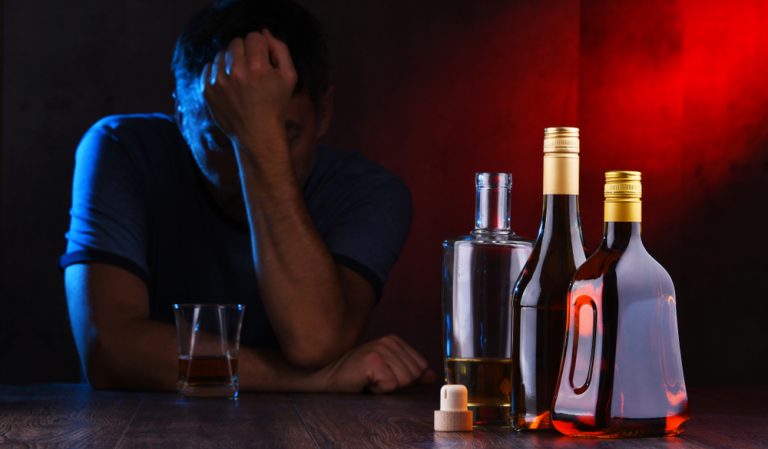Alcohol-related treatment material comprised approximately 54.6% of the AAF condition and 30.4% of the AM condition. Males are more likely to express aggression in a physical and/or direct form, whereas females are more likely to express it in an indirect form. It has also been reported that both the males and females are equally aggressive when verbal aggression is at play (Archer, 2004; Björkqvist, 2017). In an experiment conducted by Giancola and Zeichner (1995), 128 participants (64 males and 64 females) performed a task where they gave an electric shock to the fictional opponents, which included both the genders. The participants were assigned to either alcohol, a placebo, or a sober group.
- Alcohol, anger, and violence have a tricky relationship with one another, and here we will examine how they all come together.
- Challenges to treatment fidelity such as a Rosenthal Effect and non-adherence to the treatment protocol cannot be ruled out.
Stress also affects focus and attention abilities, and heightens energy while decreasing appetite and sleep functions. The most self-evident way to stop being an angry drinker is to quit drinking altogether. By ending alcohol misuse, you can make positive decisions with a clear outlook.
Why does alcohol make some people angry?
Although no objective indicators of other substance use were obtained (e.g., urine screens), participants were asked whether they had used illicit substances. For the six-month baseline period, 64.5% of the sample reported no illicit drug use, and another 10.5% of the sample reported average use at less than one time per month; there was no significant between-condition difference. The most frequent drug https://ecosoberhouse.com/ used was marijuana; 30% of the sample reported use of this drug at least once during the six-month baseline period. With regard to baseline levels of anger, males scored at the 75th percentile and females at the 55th percentile on the STAXI-trait anger scale. Here, we explore why some people get angry when they’re intoxicated and provide tips on how to stop being aggressive when you’ve had a drink.

What gives emotions their power is how we process them, the stories we tell ourselves about them, and most importantly, how we react to them. Feeling angry when someone cuts you off on a busy freeway is normal. It’s perfectly acceptable to feel anger when someone treats you or your loved one with unfairness or cruelty. Alcohol, anger, and violence have a tricky relationship with one another, and here we will examine how they all come together. If you or a loved one is struggling with alcoholism, contact FHE Health today and get on the road to recovery. The existence of an angry “crazy drunk person” is often featured in TV shows and movies because of the rising drama and action they bring to an entertaining storyline.
How Alcohol Works Affects Your Behavior
However, because of the reasons above, alcohol worsens mood swings and anger issues in people who are already generally hot-tempered people. However, when that anger becomes constant or uncontrollable, it can cause a number of issues. One of the things that can make anger even more difficult to control is alcohol.
- They are peer-led organizations dedicated to helping each other remain sober.
- When they come out, others notice them because they’re not a part of the everyday social experience.
Instigating factors normatively produce an urge to behave aggressively (e.g., provocation). These factors provide the initial momentum toward an aggressive action that represents the availability of an aggressive response. Of course, availability of an aggressive response does not mandate its enactment.
When Coping with Alcohol Use Disorder
Heightened responses due to alcohol consumption can make anger intensified. Many newly sober people begin drinking again to relieve the symptoms of withdrawal. Therefore researchers are trying to develop medications that will return balance to the body’s stress-response system to alleviate alcohol withdrawal symptoms and help prevent relapse in recovering alcoholics. Studies have found that cortisol interacts with the brain’s reward or pleasure systems, which can contribute to alcohol’s reinforcing effects—forcing people to consume greater amounts to achieve the same effect over time. Cortisol also can promote habit-based learning, increasing the risk of becoming a habitual drinker and increasing the risk of relapse. Since many people use alcohol as a way to de-stress and unwind, especially if they’re angry, it can be dangerous if it becomes a regular thing.
Hot under the collar? Heat can make you angry and even … – CNN
Hot under the collar? Heat can make you angry and even ….
Posted: Tue, 05 Sep 2023 07:00:00 GMT [source]
What’s worse is that picking up a drink again or experiencing a relapse often triggers resentment, guilt, and anger. Once this happens, many end up thinking that their recovery is worthless, and they might decide to no more extended care about their recovery. Feelings of anger can be so powerful that they https://ecosoberhouse.com/article/anger-and-alcoholism/ cloud their judgment and second-guess their reasons for being sober. Each individual has unique anger triggers based on what you expect from yourself and those around you. If you don’t know how to express anger, your frustrations can make you miserable or cause you to explode in an angry outburst.
It can be used to avoid other issues, emotions and experiences – like the abuse of alcohol. The difference is using anger in this way is a ‘skill’ that people develop over decades of practice. If this form of anger goes unaddressed, it can be detrimental to your mental health and your relationships. Combined with alcoholism, it can be very dangerous to your physical health as well. One allows you to escape from your other emotions, while the other allows you to escape further into anger.
These days, people who misuse alcohol can enroll in various treatment programs, whether you choose the 12-step approach or decide to enter residential treatment. If you’re looking for help getting started, it’s wise to speak with your physician first. Together, you can choose the best course of treatment for your needs. If you feel like you have a pattern of being aggressive when drinking alcohol, you should understand how your behavior can impact yourself and others. Depending on the frequency of your use, you may need to discuss alcohol tapering strategies with your doctor. Heavy drinkers can experience severe and sometimes life threatening symptoms when reducing alcohol intake, so it’s important to have medical support.

